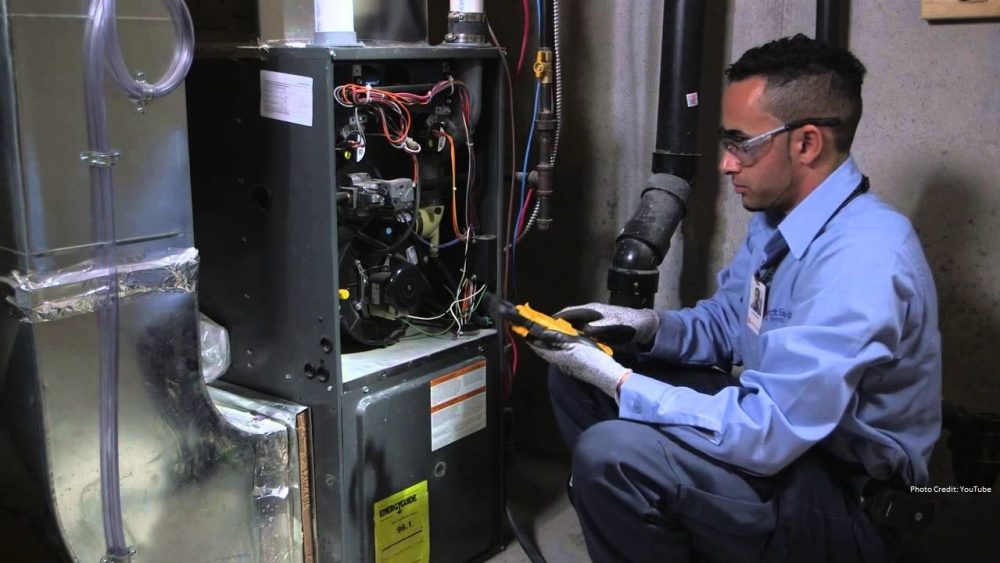
Like many of us do, you’ve discussed the issues you’re having with your HVAC with your neighbors and co-workers. Of course, they all give you their opinion on what it might be. Some things you have ruled out but when someone suggested that it sounds like it could be a cracked heat exchanger, it piqued your curiosity. Now your head is full of so many questions that you aren’t sure where to start. What is a heat exchanger? How does a heat exchanger crack, exactly? Is it dangerous? What’s the next step? Let’s talk about what your heat exchanger is, what it does and how to tell if it is, in fact, cracked.
What is a heat exchanger?
Basically, a heat exchanger is a steel chamber inside of your furnace that the fire shoots into. It heats up whatever mechanisms your system uses, like coils or tubes. The heat causes the fan to turn on which, in turn, blows the warm air around, removing it from the chamber and circulating it throughout your house. Its sole purpose is to get heat from the furnace into your house.
What causes it to crack?
Time is the number one reason that a heat exchanger will crack. While they are quite durable and will last a long time, a heat exchanger is still a mechanical part that gets used quite a lot. So, time and use will certainly put a heat exchanger through its paces and will eventually wear it out.
Burning too hot is another reason that your heat exchanger may crack. Without proper airflow, the unit will get hotter than it’s supposed to. What can cause improper airflow? You guessed it, the biggest reason is dirty filters. Another reason could be undersized ductwork in the supply exchange.
Rust occurs when there is moisture that accumulates and begins to eat the metal in and around your furnace. Rust will cause your heat exchanger to weaken and ultimately crack as well. Any moisture in your system should be addressed right away.
Signs of a cracked heat exchanger
If you have a cracked heat exchanger, there are a few signs that may give it away. For example, if the heat exchanger is working as it should, you will see a blue flame that remains steady in the furnace. A crack would cause a change in the flame. You may see a flame that dances or jumps and appears orange or yellow in color. If you don’t have a carbon monoxide detector, it should be high on your priority list. Having a carbon monoxide detector could help identify a crack in your heat exchanger. A crack means that fumes can escape and the levels of carbon monoxide could become dangerously high and a CO2 detector would alert you that there is a problem.

Next steps
If your CO2 detector has gone off and you suspect it is due to your furnace, the first step is to shut the furnace down. The next step would be to call a licensed contractor, like Dave’s Cooling & Heating, and have the issue assessed. Upon looking at the system and making the determination that the heat exchanger is in fact, cracked, you will need to decide if you want to replace just the heat exchanger or replace your furnace entirely. A qualified technician will go over all your options with you in-depth.
Helpful safety guide
Here is a link to a helpful safety guide to learn more about carbon monoxide: Guide


























